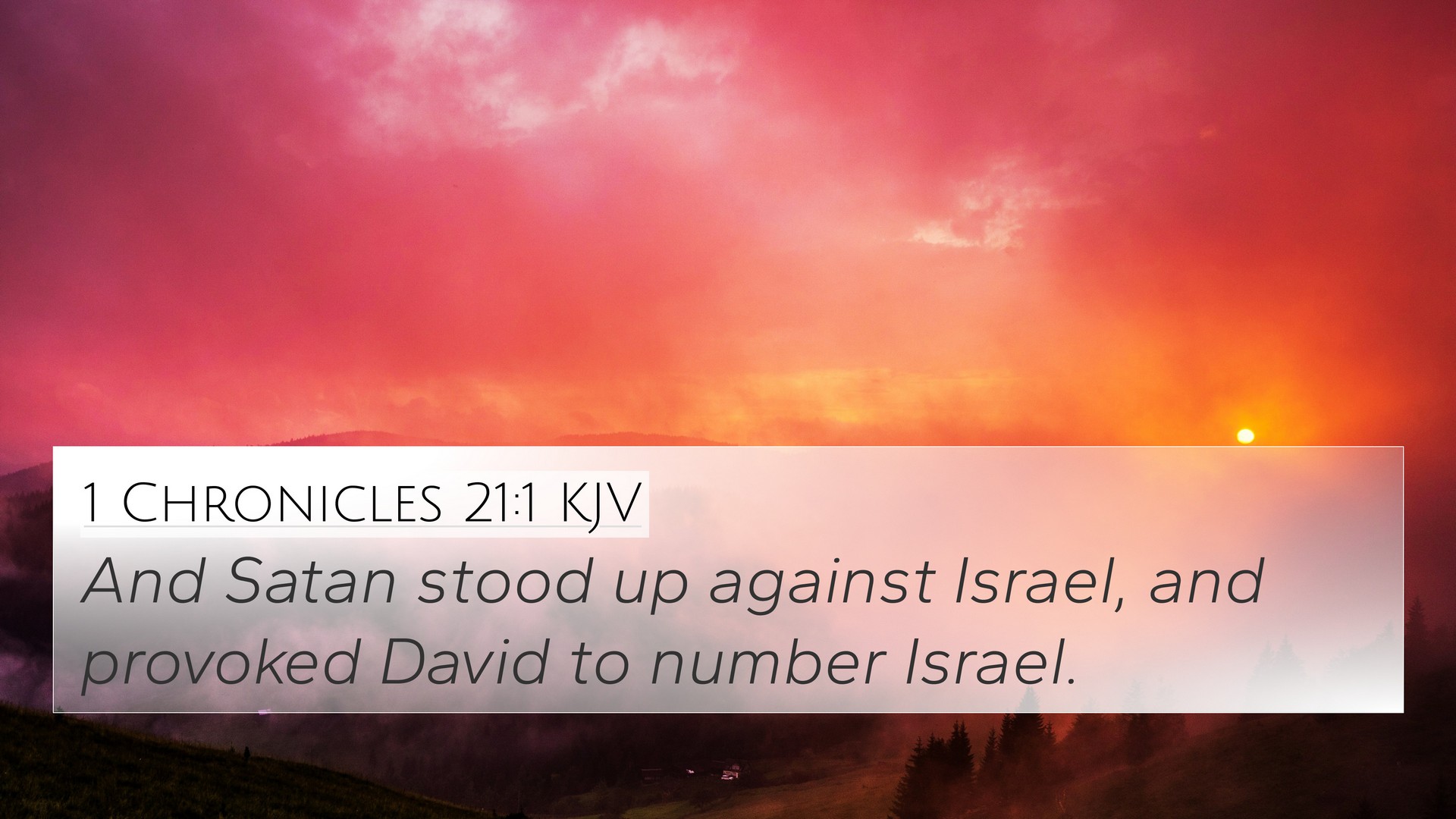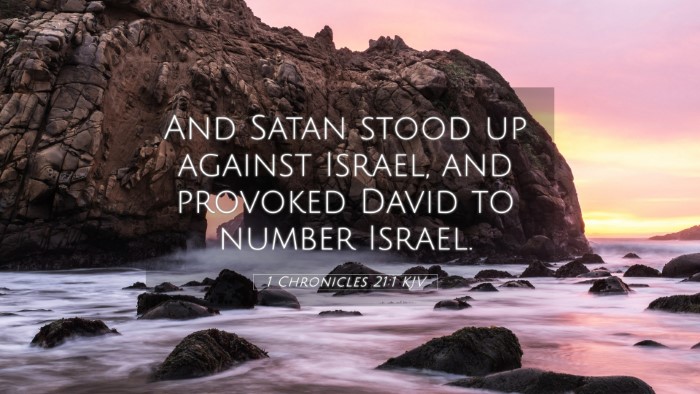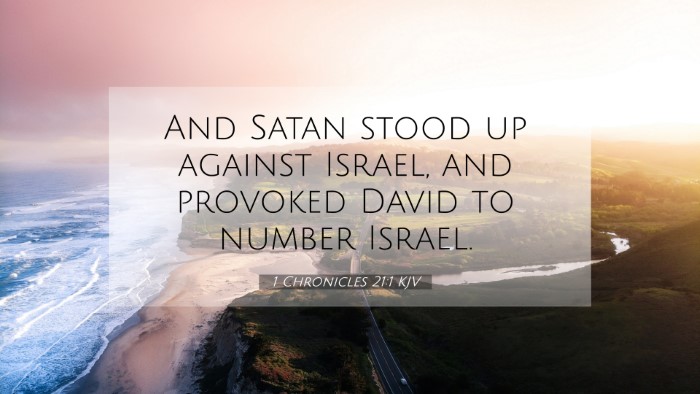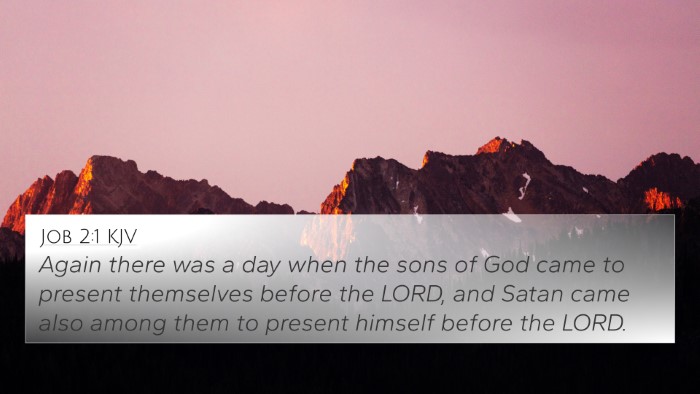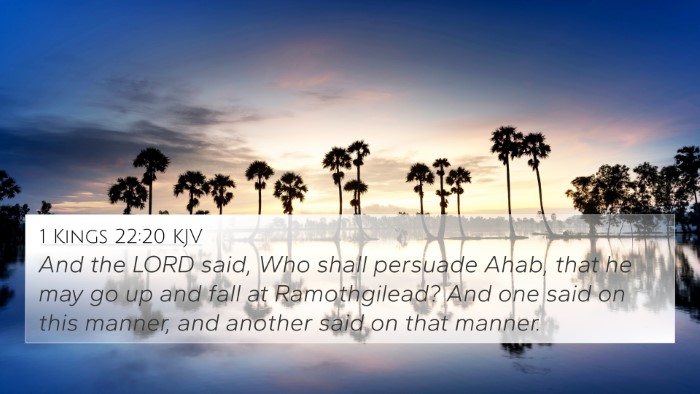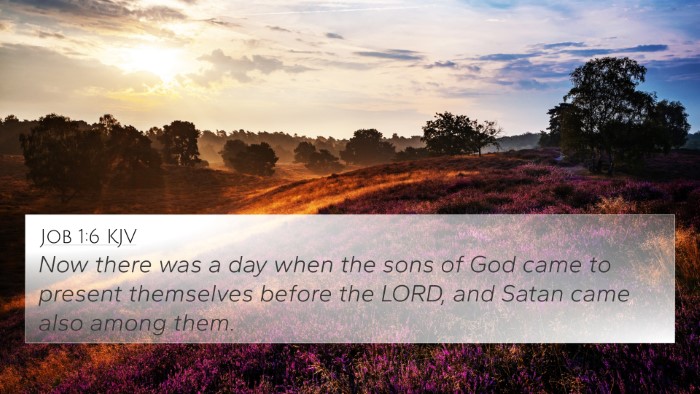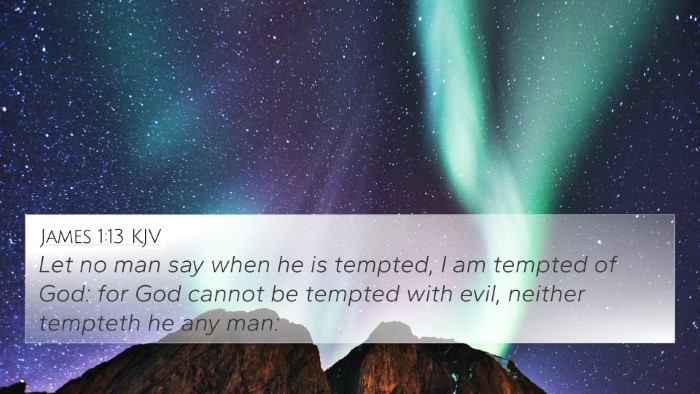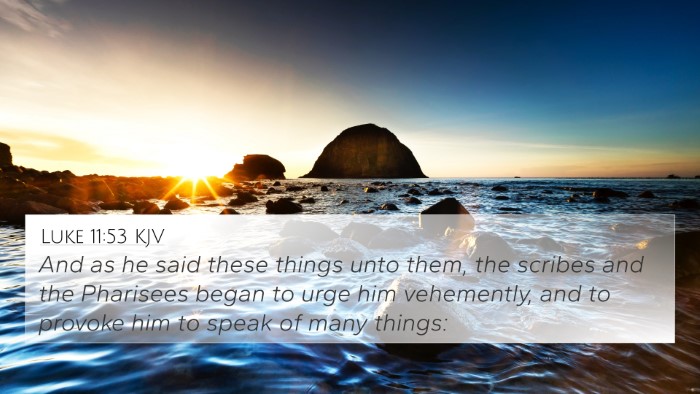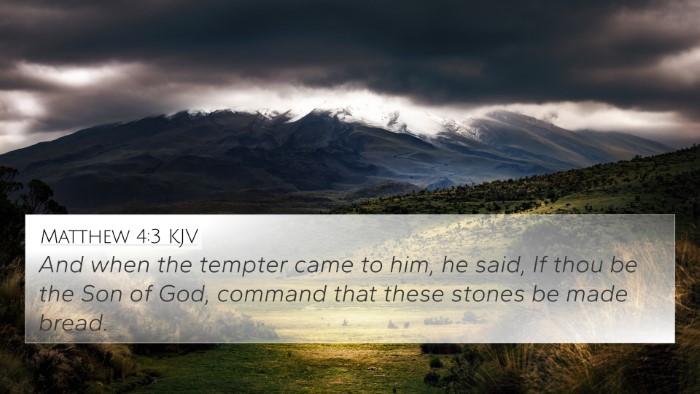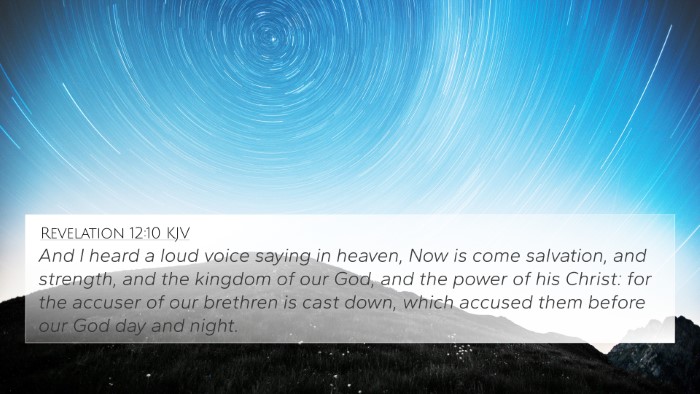1 Chronicles 21:1 - Summary and Interpretation
Bible Verse: 1 Chronicles 21:1 - "And Satan stood up against Israel, and provoked David to number Israel."
Meaning and Context
This verse presents a critical moment in the biblical narrative, where King David is influenced by Satan to conduct a census of Israel. The act of numbering the people was a significant event, often stirring discussions regarding pride, reliance on numbers, and divine stipulations regarding Israel's conduct.
Public Domain Commentaries Insights:
-
Matthew Henry:
Henry notes that this instance reveals the subtlety of Satan's influence over even a man after God's own heart. David's decision to count the people signifies a moment of pride, suggesting a dependency on human strength rather than on God’s providence.
-
Albert Barnes:
Barnes emphasizes the implications of David’s act, noting that it reflects a lack of faith. By seeking the full count of his troops, David inadvertently weighs his security on the strength of his army instead of relying on God’s promises.
-
Adam Clarke:
Clarke provides an analysis of the ramifications of this action, suggesting it spurred a series of events that led to severe consequences, including a plague as divine punishment for David's sin. Clarke points out how scripture often portrays God allowing Satan to test believers’ faith.
Thematic Bible Verse Connections
To better understand the implications of 1 Chronicles 21:1, we can identify thematic connections across the Bible:
- Psalm 20:7: "Some trust in chariots and some in horses, but we trust in the name of the Lord our God." - This verse contrasts David's reliance on numbers with the need for faith in God.
- Exodus 30:12: "When you take a census of the Israelites to count them, each one must pay the Lord a ransom for his life at the time he is counted." - It sheds light on the divine regulations surrounding counting the people.
- 2 Samuel 24:1: "Again the anger of the Lord burned against Israel, and he incited David against them, saying, 'Go and take a census of Israel and Judah.'" - This verse shows a similar event, emphasizing God's sovereignty in allowing the census's occurrence.
- 1 Thessalonians 5:22: "Abstain from all appearance of evil." - Reflects the need for discernment in actions that may lead to pride or misplacement of trust.
- James 4:7: "Submit yourselves therefore to God. Resist the devil, and he will flee from you." - This underlines the importance of resisting Luciferian temptations as depicted in David's story.
- Proverbs 14:12: "There is a way that seems right to a man, but its end is the way to death." - Highlights the dangers of human decisions made without divine consultation.
- Matthew 6:26: "Look at the birds of the air; they neither sow nor reap nor gather into barns, and yet your heavenly Father feeds them." - Encourages a deep trust in God's provision over human calculations.
Cross-Referencing Biblical Texts
The act of cross-referencing Bible verses related to 1 Chronicles 21:1 unveils a broader thematic dialogue throughout Scripture:
- Luke 22:31 - Jesus instructs Peter about Satan demanding to "sift" him, suggesting a continuous spiritual battle.
- Romans 7:21 - Paul discusses the internal struggle with sin, reflecting the paradox of human nature.
- Job 1:6-12 - A recount of Satan presenting himself before God, underscoring his role in spiritual temptations.
Understanding through Comparative Analysis
By using tools for cross-referencing the Bible, scholars and readers alike can identify similar themes across scripture:
- Bible Concordance: Useful for locating mentions of census and God's decrees concerning Israel.
- Bible Cross-Reference Guide: Aids in discovering interconnections between the actions of David and the doctrinal implications in New Testament teachings.
- Cross-Reference Bible Study: Engaging in in-depth studies can yield insights into how the narratives of temptation are portrayed across scripture.
Conclusion
1 Chronicles 21:1 serves as a significant cautionary tale against pride and misplaced reliance on human strengths rather than the divine. The insights gleaned from public domain commentaries like those of Matthew Henry, Albert Barnes, and Adam Clarke, along with cross-referencing and thematic connections, enrich our understanding and support the ongoing dialogue found within Biblical texts.
